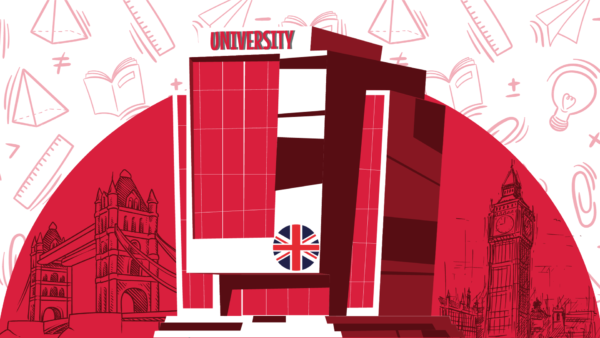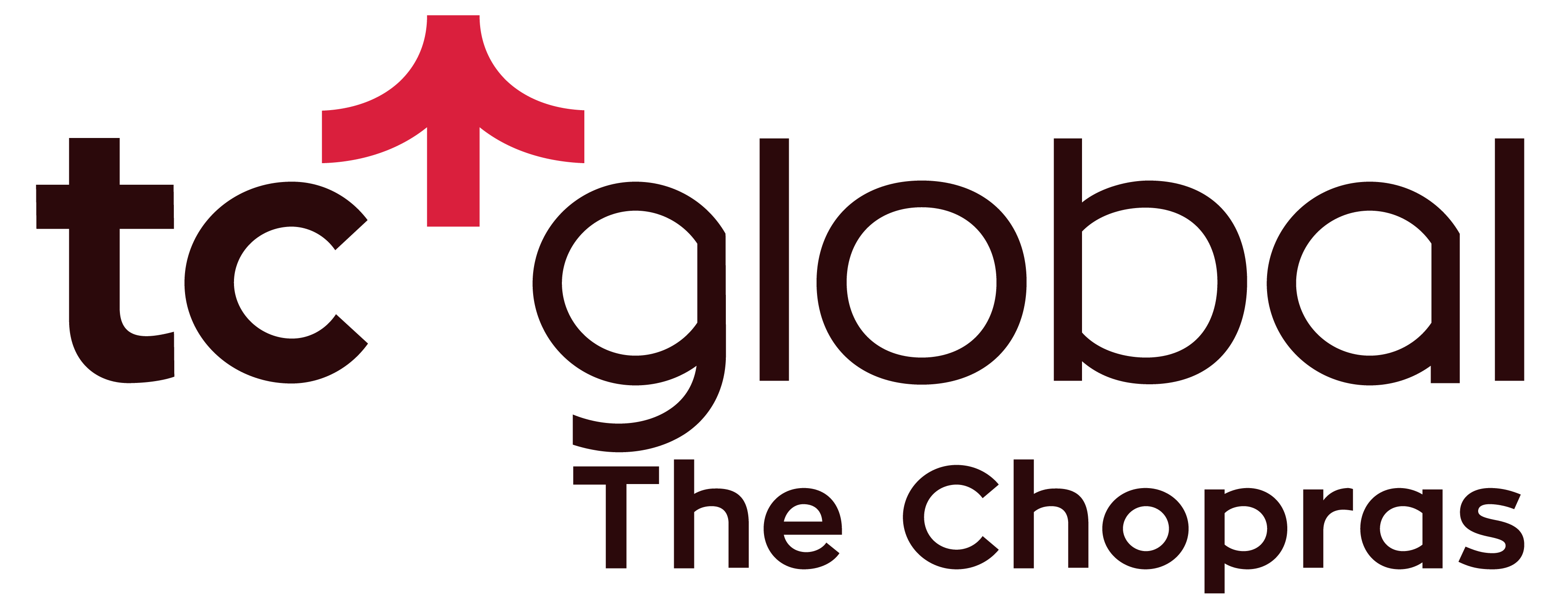Over 130,000 students from India went to either England, Scotland, Wales or Northern Ireland in 2022 to access the best course in UK after 12th standard or after bachelor’s degree. Home to some of the top universities in the world, the UK has always been one of the more popular study destinations, especially for higher education. So, if you are considering going to the UK after Class 12 for your bachelor’s degree, this article is for you.

From the ancient greats (University of Oxford and Cambridge) to the more modern ones including the University of Durham, Northumbria, Plymouth or Sheffield Hallam, the UK has always created a very inviting educational ethos, especially for students from India. Why do lakhs of international students choose the UK for their bachelor’s degree?
Here are some of the reasons.
- The UK is home to many institutions of academic excellence that are at the forefront of many disciplines. Besides teaching, UK universities also inculcate critical thinking and a research mindset, right from the undergraduate level.Simply put, quality education is one of the foremost reasons why students from India choose the UK.
- The UK has short, intensive bachelor degree programs. Most countries in the world (For example – the USA, Canada, Australia, New Zealand) have bachelors/ bachelors honours programs that are typically 4 years long. Most UG courses in UK are 3 years. You dive into your specialisation right from day one and immerse yourself entirely into your discipline. The only exception here are the universities in Scotland which offer 4 year degrees.
- Shorter courses also mean that you get to save a year’s worth of tuition and begin the next phase of your career early. This makes the UK more affordable than other popular study destinations.
- A number of scholarships and funding options are available. Another important reason why students prefer the UK is the various means of financial aid made available by both the UK government in the form of commonwealth scholarships and the universities themselves. These scholarships are awarded based both on merit and financial need.
- Option of foundation and diploma programs. If your eligibility criteria is falling short, or you believe that the transition is difficult as an Indian student getting into a UK university, you have the option of signing up for the foundation and diploma programs that are offered by most universities for most subjects. This gives you a year to prepare and provides you a more direct route into the course.
- Your Tier 4 UK student visa also allows you to work during the course of your study, as long as you are a full-time student. You are allowed to work a maximum of 20 hours a week during school time and more during semester breaks and other holidays.
- On graduation, you are also eligible to access the Graduate Route, wherein you can upgrade your student visa and live and work in the UK for two years.
- Being a student in the UK exposes you to various cultures from across the globe, making you a true global citizen.
These are some of the reasons why you consider studying in the UK.

The top universities provide some of the best undergraduate programs in UK. But, before we go into the popular options for study in UK from India, let us take a look at the country’s top ten universities. These institutions have tremendous histories, legacies, infrastructures, academic excellence, research labs and opportunities, playing a significant role in making the United Kingdom a top study destination. It is safe to say that most bachelor’s degrees offered by these universities have worldwide recognition and reputation.
World University Rank
(THE) |
University |
| 1 |
University of Oxford |
| 5 |
University of Cambridge |
| 8 |
Imperial College London |
| 22 |
University College London (UCL) |
| 30 |
University of Edinburgh |
| 38 |
King’s College London |
| 46 |
London School of Economics and Political Science |
| 51 |
University of Manchester |
| 81 |
University of Bristol |
| 87 |
University of Glasgow |
Source: THE World University Rankings 2024
Best courses in UK for Indian students
The first step in answering the question “How to study in UK from India?” is figuring out what to study. One of the primary advantages of studying in the UK is simply the variety of options, whether in the domains of arts, business studies, humanities, social sciences or STEM studies, offered by its colleges. Based on your subjects of study that you have chosen in your 12th standard, you are free to explore these options and choose the best options for study in UK from India.
Before you proceed, keep these three things in mind.
- The numbers preceding the subject areas are merely serial numbers. They are not ranked in anyway, based on popularity or industry demand,
- While looking at top universities, we will be listing the top 5, other than the overall top ten universities in the UK to give you more options to look into. It is safe to assume that Oxbridge, King’s College, LSE, University of Edinburgh or any other school listed in the top ten provide some of the best courses in UK for Indian students, across departments.
- While we are primarily looking at bachelors degrees, you can also look into diploma courses in these fields to gain a more practical knowledge of the subject in a shorter duration.
That said, the top best courses to study in UK after 12th for Indian students are
- Law
- Engineering
- Medicine
- Business Management
- Computer Science
- Biotechnology
- Psychology
- Physiotherapy
- Architecture
- Art and Design

The UK’s law courses provide a fairly comprehensive and critical study of the legal principles and the associated practical skills that one might need as a lawyer. One of the most sought after courses chosen by students from India, UK’s LLB/ integrated LLM programme gives you the option to specialise in Common Law, Scots Law (in Scotland) or international law. Beyond that, this bachelor’s programme covers the fundamental aspects of the legal system and jurisprudence.
A significant advantage of studying LLB in the UK is that you can graduate in 3 years, when compared to the typical duration of 4-5 years taken in India, the USA, Canada, Australia or New Zealand.
Best Universities for Law
| S.NO |
University |
| 1 |
Queen Mary University London |
| 2 |
Durham University |
| 3 |
University of Nottingham |
| 4 |
University of Leeds |
| 5 |
Queen’s University, Belfast, Ireland |
Fees
The annual tuition fees for a typical LLB program that is taught full time can range between 25,000 and 35,000 GBP.
Eligibility Criteria
The standard requirements to get into a law course after 12th are:
- A*A*A/ A*AA in A levels. For students from India, that translates to a score ranging from 90 – 95% in CBSE/ ISC grade 12 exams.
- Top universities like Cambridge might also require you to take some standardised tests such as AP/ SAT/ ACT in the relevant subjects (English/ Social Sciences/ Maths)
- The Law National Aptitude Test (LNAT) is mandatory for most institutions.
- Proficiency Tests: An IELTS score of 7.0 – 7.5 or any of the equivalent exams such as TOEFL or PTE is required for international students.
Employability – Post Study Work Options
Most aspiring lawyers continue with their postgraduate study in the United Kingdom for further specialisations into branches such as corporate law, criminal law, property law and so on. As a practising lawyer in the UK, you can either work as a solicitor or a barrister. Other than this, you can also create careers in HR, finance, politics or journalism. After a bachelor’s degree in law, students go on to work as legal assistants in corporates, SMEs, NPOs and NGOs to gain the necessary practical work experience before continuing further studies.

Simply put, engineering is a course where you learn to apply the principles of pure sciences to increase productivity and efficiency or even solve technical problems. The UK’s role as a world leader in research and innovation trickles down to its bachelor in engineering courses – engineering departments stay updated on the latest developments in technology and the industry and upgrade their courses accordingly. You can choose a number of specialisations, including Civil engineering, mechanical engineering, electrical engineering, computer science, and chemical engineering, either at the beginning of your degree or in your third year, depending on your university program structure.
UK universities for engineering typically provide two options at the undergraduate level. You can either opt for a BEng program which is typically 3 years (4 in Scotland) or an integrated MEng which will give a masters in engineering directly after Class XII within 4 years.
Best Universities for Engineering
| S.No |
University |
| 1 |
University of Southampton |
| 2 |
University of Birmingham |
| 3 |
Queen Mary University of London |
| 4 |
Queen’s University Belfast, Ireland |
| 5 |
University of Surrey |
Fees
The annual tuition fee ranges from £25,000 to £48,000, depending on your choice of courses, the university and the city.
Eligibility Criteria
- A*A*A/ A*AA in A levels or 12th grade in CBSE/ ISC. The cut off marks can range from 65% – 95%, depending on the university. Students who have completed State Board XII will be considered on a case-by-case basis.
- You must have scored exceptionally well in physics, chemistry, maths and english in your boards.
- A high rank in IIT-JEE will also be considered.
- IELTS Academic scores ranging from 6.5 – 7.5 or TOEFL iBT ranging from 90 – 110 are some of the commonly accepted proficiency test scores.
- Top universities like Oxford and Cambridge also require you to take up engineering entrance examinations such as the Oxford PAT or ENGAA.
Employability – Post Study Work Options
Most universities include some kind of practical training or work placement as part of their bachelors in engineering. This gives you an in into real world job opportunities. The UK is also facing a shortage of civil engineers, design and development engineers, and aeronautical engineers among others. There is also a noticeable increase in roles for “green” engineers or those specialising in sustainable engineering.

Worldwide, the UK has played a pivotal role in developments in the field of medicine as we know it today. Moreover, the UK’s government sponsored healthcare model – the NHS is one of the foremost providers of medical care to the residents of the country.
These are just some of the reasons why an MBBS is one of the top courses to study in UK for Indian students after 12th. Be it medicine, nursing, dentistry, veterinary medicine, or pharmacy programs in the UK – the universities provide top notch education for its students, preparing them to meet and excel at the professional demands of the different fields.
Best Universities for MBBS/ Medical courses
| S. NO |
University |
| 1 |
University of Liverpool |
| 2 |
University of Southampton |
| 3 |
St George’s University of London |
| 4 |
University of Warwick Medical School |
| 5 |
University of Leeds School of Medicine |
Fees
The annual tuition fees can range from £35,000 to £65,000. Medicine and any of the medical science courses are typically some of the most expensive areas of study, especially as an international student as it can take 5-6 years to complete.
Eligibility Criteria
- A*A*A /A*AA/ AAA in A levels depending on the university or their international equivalents.
- Applicants must have displayed academic excellence in these required subjects: Biology, Physics, Chemistry and English.
- Students applying for MBBS will have to take the BMAT (Biomedical Assessment Test).
- High level English proficiency exhibited through IELTS/ TOEFL/ PTE/ CPE or other equivalent exams.
Employability – Post Study Work Options
In today’s post pandemic world, there is no dearth of job options for medical and healthcare professionals. Medical practitioners in UK must be registered with the General Medical Council (GMC). Most doctors, on completion of their Primary Medical Qualification go on to specialise in particular areas of study to become specialist doctors. While the basic salary in foundation training can range from £32,398 to £37,303, experienced specialist grade doctors can earn as high as £90,000 per annum.

In the larger domain of Commerce, Business Management or a BBA degree is probably the best course in UK after 12th commerce for Indian students. As one of the hubs of the global economy, London in particular and the UK as a whole has excellent business courses right from the bachelor’s level. Whether you want to specialise in management, international business, accountancy, human resources, entrepreneurship, marketing or business analytics, BBA is one of the most popular commerce courses chosen by students from all over the world.
Best Universities for Business Studies
| S. NO |
University |
| 1 |
University of Strathclyde |
| 2 |
Coventry University |
| 3 |
University of Sheffield |
| 4 |
Lancaster University |
| 5 |
University of London |
Fees
The average tuition fees per year is between £16,000 and £30,000.
Eligibility Criteria
- Complete Class XII with competitive scores, depending on the university
- Some top universities in the UK might require you to also submit SAT/ ACT scores.
- As an Indian student, you will also be expected to submit IELTS/ TOEFL scorecards.
Employability – Post Study Work Options
Students who graduate from UK business schools go on to work in roles such as marketing executives, financial analyst, project managers or in the field of business development. The average salary for these roles for someone with a bachelor’s degree is around £25,000 to £35,000. After gaining the required work experience, most students go on to pursue an MBA or postgraduate diploma courses specialising in the different aspects of business management.

It is almost impossible to imagine an industry where digital technology does not play a pivotal role. So it is no wonder why computer science has found its place on this list. With rapid developments in technology, there is always a growing need of specialists who can keep up with industry’s demands, whether it is in the field of software design, data sciences, UI/UX design, network architecture or cybersecurity. If you like the idea of studying cybersecurity in the UK, then you should explore the top universities for the program, as it has some great courses.
Best Universities for Computer Science
| S. NO |
University |
| 1 |
University of Warwick |
| 2 |
Queen Mary University of London |
| 3 |
Lancaster University |
| 4 |
University of Southampton |
| 5 |
University of Birmingham |
Fees
The cost of tuition can range from 15,000 to 30,000 GBP depending on the university and specialisation. To this, we typically add 10,000 – 12,000 GBP per year for the cost of living.
Eligibility Criteria
- You should be over 17 years of age by the registration deadline of your enrolment session
- Competitive 12th scores with computer science and mathematics
- Proof of English language proficiency
Employability – Post Study Work Options
There is an increasing demand for roles such as Information Security Analyst, Network Administrator, Data Scientist, and Software Developer in the UK. With the industry being as vast as it is, there is a high probability of you being absorbed into the UK workforce, especially after a master’s degree.

At its core, biotechnology uses living cells and the current knowledge of biology to create or improve products in the fields of pharmaceuticals, diagnostics, agriculture, sustainability, biodiversity, animal husbandry and many more, with the ultimate aim of benefitting society. By bringing together natural sciences and technology, you will become a part of one of the fastest growing industries in the world.
Best Universities for Biotechnology
| S.NO |
University |
| 1 |
Newcastle University |
| 2 |
University of Manchester |
| 3 |
University of Nottingham |
| 4 |
University of Bristol |
| 5 |
University of Birmingham |
Fees
Considering the amount of lab work and the practical components of this program, a BSc in Biotech can range from £28,000 to £35,000.
Eligibility Criteria
- Grade 12 with excellent scores in biology, chemistry, physics and maths.
- IELTS ranging from 6.0 – 7.0 / TOEFL iBT ranging from 90 – 100.
Employability – Post Study Work Options
Most graduates of the BSc or honors degree go on to specialise in niche areas such as environmental biotech, medical and health tech, industrial biotech, agriculture, drug research and so on. Organisations typically employing biotech majors include biotechnology and genetic engineering firms, food and drink manufacturers, conservation companies, government or private research institutes, the NHS and private hospitals, drug companies and private clinical research companies (genetics, disease detection, therapy, etc.)

The UK is one of the most advanced nations when it comes to research and education in the field of psychology, especially when you are looking at branches such as developmental, forensic or sports psychology making it one of the most popular options for study in UK from India.
Best Universities for Psychology
| S.NO |
University |
| 1 |
Cardiff University |
| 2 |
University of Bristol |
| 3 |
University of Kent |
| 4 |
University of Birmingham |
| 5 |
University of Exeter |
Fees
Depending on the university, the tuition for a BSc psychology program can range from £22,000 to £38,000.
Eligibility Criteria
Psychology requirements to study in UK for Indian students after 12th
- Grade 12 scores with at least one or two of the following subjects: Chemistry, maths, biology, physics or psychology
- IELTS scores ranging from 6.0 – 7.5, depending on the university or its equivalents.
Employability – Post Study Work Options
There is an increasing emphasis on mental health in organisations and industries across the globe. Besides mental health services, psychology graduates also find work in fields such as marketing, HR, advertising, education and other professional services.

Choosing physiotherapy as a career choice allows you to directly help people and be an integral member of the healthcare industry without going through the conventional MBBS or nursing route. UK universities are renowned for their courses in physiotherapy and sports and exercise sciences that will allow you to work in interesting industries.
Best Universities for Physiotherapy/ Sports Sciences
| S.NO |
University |
| 1 |
Loughborough University |
| 2 |
University of Birmingham |
| 3 |
University of Bath |
| 4 |
Brunel University |
| 5 |
Leeds Beckett University |
Fees
Depending on the university, the fee can range from £19,000 to £35,000 per year. The BSc program is typically 3 years long.
Eligibility Criteria
- Good 12th scores in the science stream
- English language tests (IELTS/ TOEFL/ other equivalents)
Employability – Post Study Work Options
There is an increasing demand for physiotherapists in the UK. Career options include becoming a physical therapist, getting into sports related design and therapy, becoming a chiropractor, working in a hospital or a care facility and so on.
What’s important to note about healthcare careers is that in a world where infectious diseases are on the rise, studying public health or medicine is a great option for those inclined towards these fields.

While a masters degree in architecture has always been attractive to international students, many more are turning to the UK for a bachelor’s degree in architecture. Offering specialisations in urban landscape development or even sustainable architecture, it is one of the best undergraduate courses in UK for Indian students.
Best Universities for Architecture
| S.NO |
University |
| 1 |
Cardiff University |
| 2 |
Loughborough University |
| 3 |
Ulster University |
| 4 |
University of Sheffield |
| 5 |
University of Liverpool |
Fees
The fees can range from £15,000 to £32,000 per year.
Eligibility Criteria
- Competitive marks in Class XII that includes sciences and maths.
- Some universities also have an entrance exam that tests your aptitude for the subject.
- TOEFL/ IELTS/ PTE.
- A well curated portfolio of art and design portfolio.
Employability – Post Study Work Options
Most graduates go on to pursue a masters degree specialising in one of the facets of architecture. To be a registered architect in the UK you must gain the ARB/ RIBA professional qualifications. Studying bachelors in UK universities is the easier first step than looking for conversion courses later on.

As a cultural and creative hub, many students turn to the United Kingdom to study the creative arts or other design subjects that include literature, fashion, UI UX Design, writing, graphic design and so on. The choice to pursue these courses are typically driven by passion and a need to express one’s creative talents.
Best Universities for Art and Design
| S.NO |
University |
| 1 |
Royal College of Art |
| 2 |
University of the Arts London |
| 3 |
The Glasgow School of Art |
| 4 |
Goldsmiths, University of London |
| 5 |
Loughborough University |
Fees
The fees range from £15,000 to £30,000 depending on the medium and the technology involved in your choice of programs.
Eligibility Criteria
- Competitive class 12 scores ranging from 65 – above 90%, depending on the university
- Proof of English language
- Art/ Design portfolio
Employability – Post Study Work Options
As a creative professional, you can find job opportunities across all industries. There is also a particular demand for UI/ UX designers and graphic designers in the UK as we become increasingly dependent on digital media.

Here, we look at the cost of a typical bachelors degree in UK for Indian students. Please note that these are average/ median figures and are bound to change depending on the course, university and the city.
| Cost |
Amount in Pounds
(Approx figures per year) |
| Tuition (Range) |
£15,000 – £50,000 |
| Cost of Living |
| Rent (On Campus) |
£4,000 – £7,000 |
| Rent (Off campus, shared living) |
London – £9,000
Rest of UK – £6,700 |
| Food |
£1,800 – £2,200 |
| Transport |
£1,000 |
| Health Insurance |
£470 |
| Utilities |
£650 – £800 |
| Average Total Living Expenses |
£14,400 – £16,800 |

Almost all universities and their individual schools have a scholarship budget that is allocated particularly for international students. While researching your courses, it also important to look for the different kinds of financial aid available to you. Typically, financial aid is disbursed in the form of scholarships/ awards, bursaries, discounts and student loans.
In addition to the individual university’s scholarships, here are some of the general scholarships for Indian students to study in UK after 12th:
- Chevening Scholarships
- Commonwealth Scholarships
- The Charles Wallace Educational Trust Scholarships
- Global Study Awards
- Dr Manmohan Singh Scholarships
- Inlaks Scholarships
- Tata Scholarships
- British Council GREAT Scholarships
While these are the most popular ones that cover most of the tuition fees and living expenses, it is also important to understand that scholarships can be very competitive. You have to take some time to ensure your scholarship applications meet all the requirements. In addition to these, you can also look into subject specific awards that might be a better option for your course. You can always reach out the the experts at TC Global for more guidance.

Application Process
- At the undergraduate level, the process is simple and occurs through one portal called UCAS (University College Admissions System). This portal basically collects your profile along with the application fee and then distributes it to the relevant universities.
- Some universities like Cambridge might also require you to submit a secondary application. However, these are few and far between.
- You are expected to create an UCAS account so that the universities can get in touch with you.
- Some courses might require you to sit for an interview if your application is shortlisted.
Documents required for application
- Academic transcripts for 10th and 12th in the prescribed format. (They have to be in English or translated by recommended services)
- English proficiency test scores
- Standardised test scores, if applicable
- Design or art Portfolio/Writing samples if called for
- A statement of purpose (SOP)
- Letters of Recommendation (LOR)
- Proof of finance
- Passport
- Health certificates including vaccination records
Application Timeline
While many universities advertise three intakes – September, January and May, the September (Fall intake) is the most popular and has the most choice of courses. Your application process typically begins a year before your entry. On submission, application processing can take anywhere from 4 – 10 weeks.
UK Student Visa for Indian students
Once you have received an offer from a university and accepted it, you can begin the process of UK student visa application. For an overseas student who is studying for more than 6 months in the UK, a Tier 4 visa is required. It costs about £370.

Can I study in UK after 12th?
Yes, absolutely. The English and Indian higher education systems follow almost the same models which means you can study in UK after 12th, as long as you meet the admission requirements set by the universities. If you choose not to pursue a traditional bachelors degree, you can also choose any of the diploma courses offered by UK colleges.
What are the Eligibility criteria to study in UK after 12th?
The minimum percentage required for UK after 12th varies with the universities. However, a minimum of 60% is required. Some of the best courses or universities might require you to have over 90%. In addition, you will need to submit proof of English proficiency and take up entrance exams, if required by the universities.
What is the cost of studying in UK for Indian students?
The tuition can range anywhere from £15,000 to £50,000 (15 – 50 lakhs INR). We also suggest you budget another 15 – 20 lakhs INR for your yearly living expenses in the UK.
How can I get admission in UK after 12th?
Once you have chosen your university and the course, you can apply through UCAS and follow the steps and their timeline. You can also reach out to the RMs at TC Global who will be with you at every step of the way.

Picking the best courses in UK after 12th for you can be challenging – finding the right program or deciding which one is right for you can get overwhelming. TC Global simplifies your joureney – from search and discover to getting admission and departure.
We simplify international education, learning, and mobility through connecting students, universities, and a global community on a single platform where there are over 1000+ education providers and over 80,000+ courses.
Our platform enables students to study anywhere in the world in just a few steps. From search and discovery and finding the right course fit for you, to the application process, student visas and departure – we see you through it all.
To move forward with us, download our app or visit tcglobal.com and sign in to create an account on our student platform and onboard with us in quick, easy steps.! ?
Then simply set up a visit Calendly.com/tcglobal to pick a Relationships Team closest to you and choose a slot to meet with a Relationship Member.
Let’s shape your future together.
You May Also Like:






























